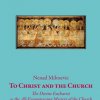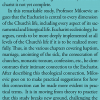By Justin Chang [Film Critic]
Aug. 20, 2020
3:10 PM
The Los Angeles Times is committed to reviewing new theatrical film releases during the COVID-19 pandemic. Because moviegoing carries inherent risks during this time, we remind readers to follow health and safety guidelines as outlined by the CDC and local health officials. We will continue to note the various ways readers can see each new film, including drive-in theaters in the Southland and VOD/streaming options when available.
The past few years have brought a fresh resurgence of interest in the life and legacy of Nikola Tesla, the popularity of an Elon Musk electric car being only the best-known example. You can find Tesla’s tall, dark-suited frame and mustachioed frown in graphic novels and video games; you can hear his innovations extolled in the lyrics of rock songs and even a 2018 stage musical.
The movies have done their part to exploit his considerable mystique without necessarily drawing him in from the sidelines: David Bowie played him as the drollest of enigmas in “The Prestige” (2006), and Nicholas Hoult gave us a peek at Tesla the wily young upstart in the more recent “The Current War.” You could say that history itself consigned Tesla to a subordinate role, that of the tragically thwarted genius — remembered as much for his lopsided rivalry with Thomas Edison and his ill-fated dealings with various titans of industry as for his groundbreaking advances in the study of electrical power and wireless communications.
Read More: Los Angeles Times
Official Trailer






